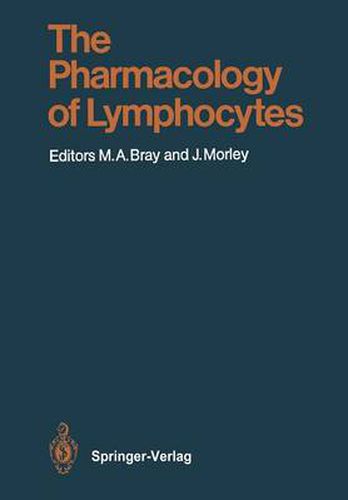Readings Newsletter
Become a Readings Member to make your shopping experience even easier.
Sign in or sign up for free!
You’re not far away from qualifying for FREE standard shipping within Australia
You’ve qualified for FREE standard shipping within Australia
The cart is loading…






This title is printed to order. This book may have been self-published. If so, we cannot guarantee the quality of the content. In the main most books will have gone through the editing process however some may not. We therefore suggest that you be aware of this before ordering this book. If in doubt check either the author or publisher’s details as we are unable to accept any returns unless they are faulty. Please contact us if you have any questions.
Immunopharmacology , why not pharmacoimmunology ? Professor H. O. Schild University College London, 1962 An intact immune response is essential for survival, as is evidenced by the various innate immune deficiency syndromes and by the emergence of the acquired immune deficiency syndrome (AIDS) as a pandemic during the last decade. Substances which stimulate the immune response might contribute to the therapy of AIDS and its precursor, AIDS-related syndrome, as well as of other clinical conditions in which immune responses can be diminished, such as carcinoma and infections. In other circumstances, an intact or heightened immune response may pose clinical problems; hence there is need to suppress, or diminish, components of the immune response. For instance, it is necessary to impair cellular immunity in order to ensure lasting acceptance of heterografts and it is already established that agents effective in transplantation are therapeutically effective in an range of autoimmune diseases. More recently, experimental studies have indicated that aberrant manifestations of humoral immunity, as in allergies, may also be amenable to pharmacological intervention.
$9.00 standard shipping within Australia
FREE standard shipping within Australia for orders over $100.00
Express & International shipping calculated at checkout
This title is printed to order. This book may have been self-published. If so, we cannot guarantee the quality of the content. In the main most books will have gone through the editing process however some may not. We therefore suggest that you be aware of this before ordering this book. If in doubt check either the author or publisher’s details as we are unable to accept any returns unless they are faulty. Please contact us if you have any questions.
Immunopharmacology , why not pharmacoimmunology ? Professor H. O. Schild University College London, 1962 An intact immune response is essential for survival, as is evidenced by the various innate immune deficiency syndromes and by the emergence of the acquired immune deficiency syndrome (AIDS) as a pandemic during the last decade. Substances which stimulate the immune response might contribute to the therapy of AIDS and its precursor, AIDS-related syndrome, as well as of other clinical conditions in which immune responses can be diminished, such as carcinoma and infections. In other circumstances, an intact or heightened immune response may pose clinical problems; hence there is need to suppress, or diminish, components of the immune response. For instance, it is necessary to impair cellular immunity in order to ensure lasting acceptance of heterografts and it is already established that agents effective in transplantation are therapeutically effective in an range of autoimmune diseases. More recently, experimental studies have indicated that aberrant manifestations of humoral immunity, as in allergies, may also be amenable to pharmacological intervention.